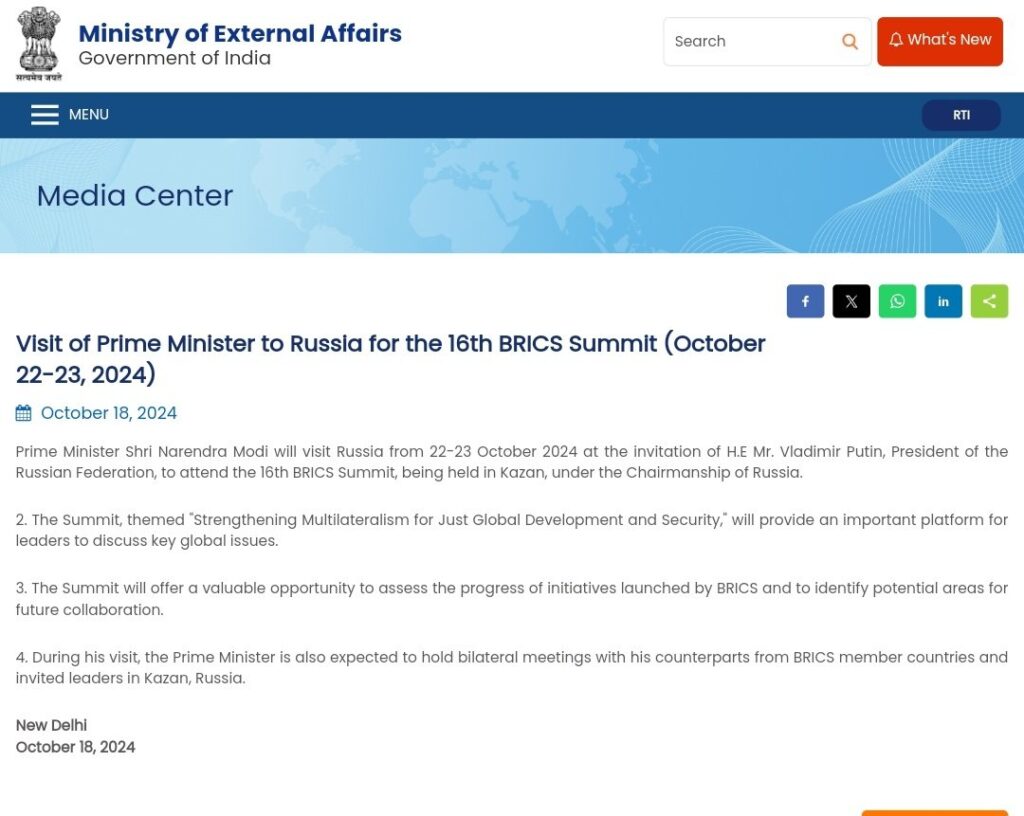Prime Minister Narendra Modi is scheduled to travel to Kazan, Russia, on Tuesday for the 16th BRICS Summit. This marks the first summit since the group’s expansion last year, which now includes Iran, Egypt, Ethiopia, and the United Arab Emirates, alongside the original members: Brazil, Russia, India, China, and South Africa.

Key Agendas for the Summit
The main discussions are set for Wednesday, with several important issues on the agenda:
Global Multipolarity: India sees BRICS as vital for fostering global multipolarity and addressing international challenges, according to Foreign Secretary Vikram Misri.
Collaborative Platform: The BRICS grouping is regarded as an essential platform to tackle various global challenges while promoting a more equitable and open international order.
Kazan Declaration: Leaders are expected to adopt the Kazan declaration, outlining future cooperation among BRICS nations.
Bilateral Meetings: PM Modi is anticipated to engage with several world leaders, including China’s Xi Jinping, Turkey’s Recep Tayyip Erdogan, and Iran’s Masoud Pezeshkian. Bilateral discussions with key BRICS leaders are also on the agenda.
India-Russia Relations: A significant meeting is planned between PM Modi and Russian President Vladimir Putin, likely focusing on the ongoing Ukraine conflict.
Speculation on China Meeting: Although unconfirmed, there are expectations that PM Modi may hold a bilateral meeting with President Xi Jinping during the summit.
Trade Goals: India aims to enhance its bilateral trade with Russia to $100 billion by 2030, a target established during PM Modi’s last visit in July. A key meeting in November will set new sectoral trade goals, led by the External Affairs Minister and Russia’s Deputy PM.
Cultural Ties: Strengthening cultural connections and promoting people-to-people exchanges, particularly in Indian studies and cinema, is a priority for the Indian government.
As the summit approaches, these discussions are poised to shape the future trajectory of BRICS cooperation and enhance India’s role in global affairs.



